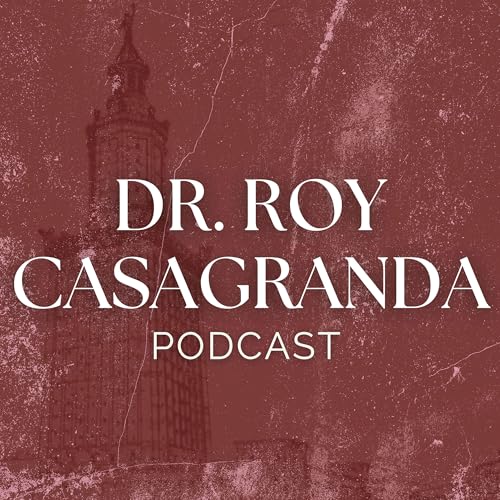
Decoding Systems
Failed to add items
Sorry, we are unable to add the item because your shopping cart is already at capacity.
Add to basket failed.
Please try again later
Add to Wish List failed.
Please try again later
Remove from Wish List failed.
Please try again later
Follow podcast failed
Unfollow podcast failed
-
Narrated by:
-
By:
About this listen
Language isn’t just communication; it’s power. Drawing on insights from Malcolm X, George Orwell, and political history, Roy unpacks how misused words blur meaning and control our thinking. He then decodes the difference between countries, states, provinces, and nations, and why these distinctions matter for understanding politics, legitimacy, and sovereignty.
Takeaways:
- Why Malcolm X studied the dictionary in prison, and what it reveals about language and empowerment.
- George Orwell’s 1984 and the dangers of shrinking vocabulary.
- The difference between accuracy vs. precision, theory vs. hypothesis, and why the misuse of words weakens critical thinking.
- Clear definitions of country, state, province, nation, and nation-state with real-world historical examples.
- How legitimacy, revenue, and violence form the foundations of sovereignty.
- The role of identity in creating nations, from the Navajo to the Rohingya.
- Why states fail, how legitimacy erodes, and what history teaches about repeating cycles.
Resources & References:
- Malcolm X, The Autobiography of Malcolm X
- George Orwell, 1984
- Harvard Implicit Bias Test (IAT)
- Case studies: Punt, Burgundy, Navajo Nation, Brexit and the EU, the Rohingya people, failed states like Somalia
- U.S. Constitution and Articles of Confederation
Beyond the podcast:
- Want to watch this lecture? Check out the full video.
- Want to support the show? Buy Dr. Roy a coffee!
This lecture was originally recorded at the Museum of the Future for the series Lessons from the Past (2025).
No reviews yet
In the spirit of reconciliation, Audible acknowledges the Traditional Custodians of country throughout Australia and their connections to land, sea and community. We pay our respect to their elders past and present and extend that respect to all Aboriginal and Torres Strait Islander peoples today.


